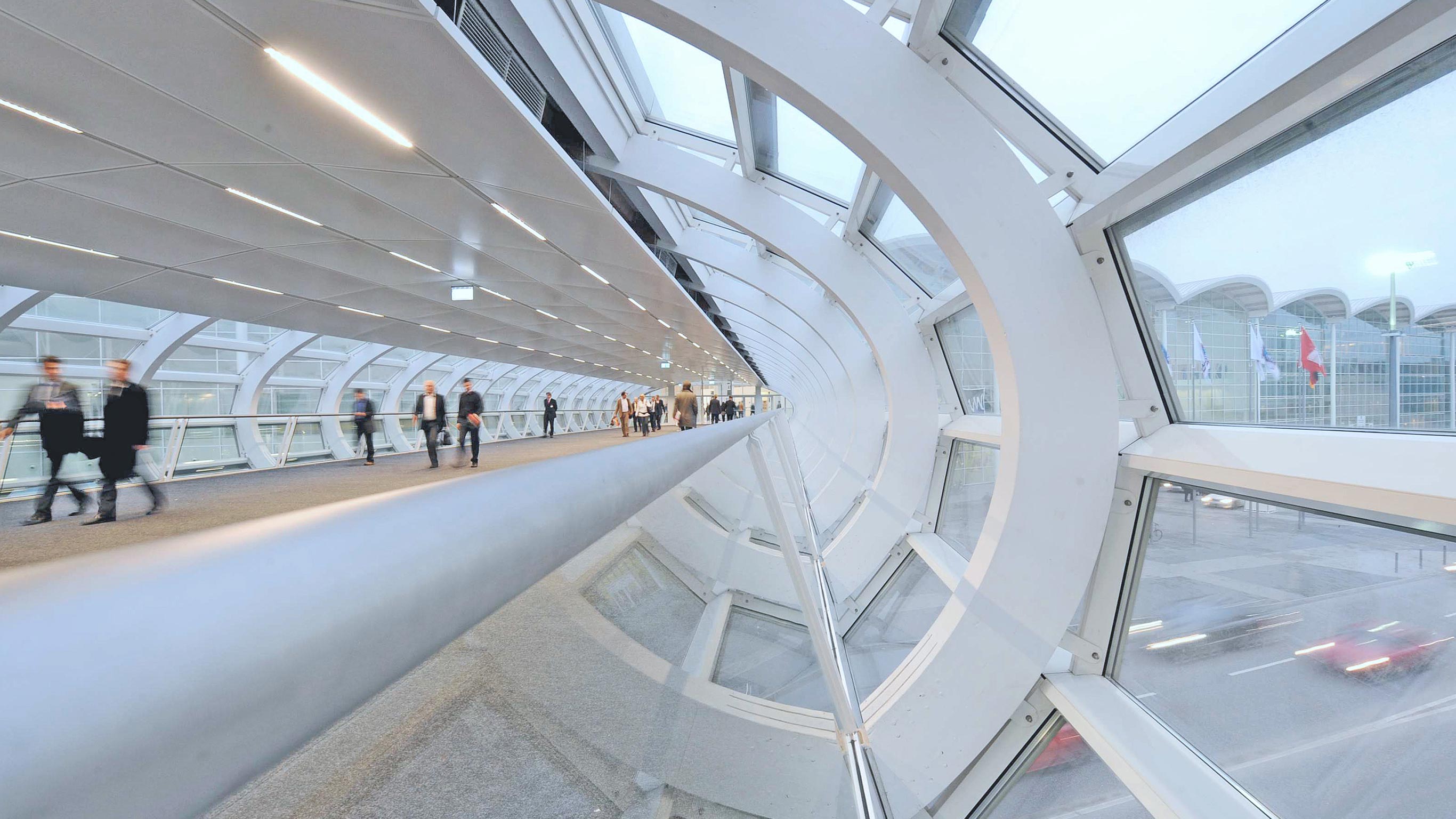
Vision // New impulses
Youthful Ideas for the Future: Sofia Zindler on Her Award-Winning Bachelor’s Thesis
Sofia Zindler could hardly believe her luck. For her bachelor’s thesis, she was awarded the 2019 Messe-Impuls-Preis, which is endowed with 1,000 euros, presented by the Fachverband Messen und Austellungen (FAMA).
The FAMA awards the prize to honor recipients for their research on the subject of trade fairs and exhibitions. In her bachelor’s thesis, our former dual student addressed the use of indoor analytics at exhibition companies in Germany. Sofia Zindler thus entered into uncharted scientific territory, because only a few event organizers make use of this analysis tool to date. The data obtained in this manner is meant to help customers better understand how to place products and services in a more targeted manner as well as generate income without marketing waste.
In her thesis, Sofia Zindler investigated the potential of means such as person tracking, frequency measurement, and object tracing. To this end, she conducted online interviews of exhibition companies and experts and developed three potential applications – so-called use cases – to come up with application and earnings fields. Some examples include frequency-oriented pricing for booths or the analysis of flows of visitors.
Sofia Zindler, Former Team Assistant International Trade Fairs and Exhibitions
“I hope that my work provides digital support to the exhibition format so that it can continue to exist in the future with its characteristics as an analogue and personal place for industries to come together.“
“The thesis makes an important contribution to fundamental research and portrays three concrete use cases at the same time. That combination makes the thesis as exciting as it is useful,” says FAMA Chair Carola Schwennsen to explain the decision of the panel. The prize, which comes with an endowment of 1,000 euros, was presented at the FAMA meeting at the end of November 2019 at the exhibition grounds in Essen. Sofia Zindler has now successfully finished her dual study program at HMC.
© FAMA e.V.
Interview with Sofia Zindler
Sofia, how does it feel to have won this award?
Wonderful! It was an indescribable feeling – that all the work and effort I invested into my thesis over the three months ultimately paid off beyond just officially passing and graduating, and then with being awarded with such a valuable award. In addition to that, the relevance of my subject gained recognition, which is of course very pleasing to me as well.
Could you give a brief description of what your bachelor’s thesis is about?
Indoor analytics enables a wide range of applications for data collection and evaluation, such as measuring the flow of visitors or tracing objects or persons in closed premises. If the positioning technologies like beacons, Wi-Fi, and camera systems are used properly, this results in countless possibilities for exhibition companies, visitors, and exhibitors to make use of the data, which could in turn result in increased added value for everyone involved: customers are better understood, products and services are placed in a more targeted manner, and income can be increased.
What got you into this subject?
I read an article about shopping centers, airports, and universities that had digitized their buildings, thereby enabling users to better navigate their ways around the interiors. I found it so exciting that I kept researching and asked myself how I could apply the subject to the exhibition sector.
Why is the subject so important?
The subject is current and important because digitization will force all companies, now and in the future, to adapt their offers to the changing framework conditions of the digital economy as well as the new requirements of customers, as well as to support their offers with digital services. For exhibitions in particular, this means finding methods early on for how the format can be digitally supported so that it can continue to exist in the future with its characteristics as an analogue and personal place for industries to come together.
Click here for the detailed interview with the award winner. The interview is in German.